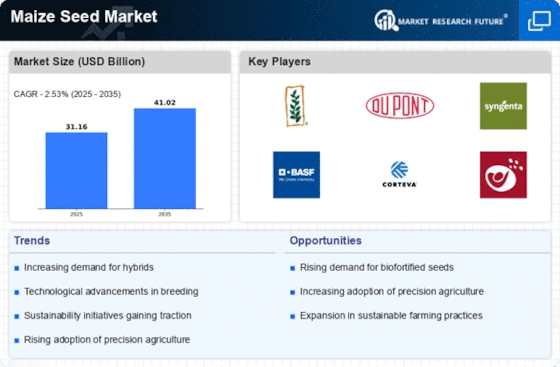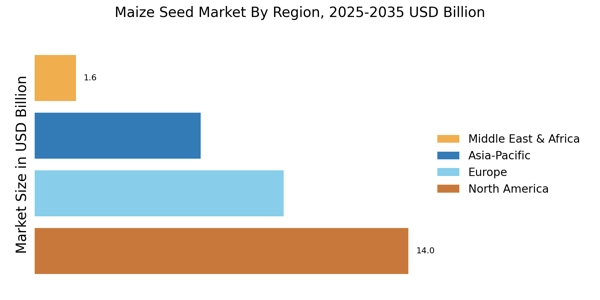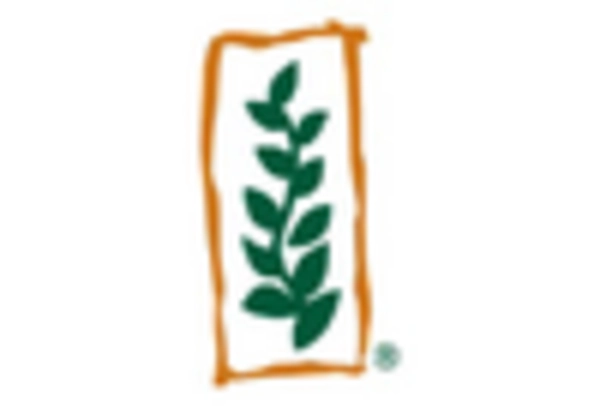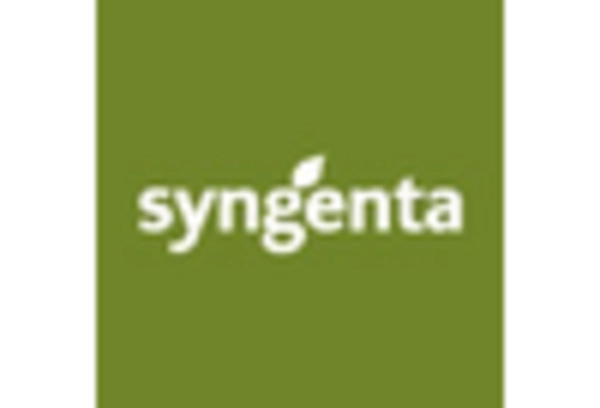The Maize Seed Access
The maize Seed Industry. Trade agreements and tariffs can facilitate or hinder access to various markets, influencing seed availability and pricing. In recent years, countries have engaged in negotiations to enhance trade relations, which has led to increased exports of maize seeds. For instance, in 2023, maize seed exports rose by 10% due to favorable trade policies. This trend suggests that as international markets become more interconnected, the Maize Seed Market will likely benefit from expanded opportunities, allowing producers to reach new customers and enhance their market presence.
Government Support and Subsidies
Government support and subsidies play a crucial role in shaping the Maize Seed Market. Many countries implement policies aimed at boosting maize production through financial incentives, research funding, and infrastructure development. For example, in 2023, several nations allocated substantial budgets to enhance agricultural productivity, with maize being a focal point due to its economic importance. Such initiatives encourage farmers to invest in high-quality seeds and modern farming techniques, thereby increasing overall production. This supportive environment is likely to foster growth in the Maize Seed Market, as stakeholders benefit from enhanced resources and opportunities.
Increasing Demand for Maize Products
The rising demand for maize products, including food, feed, and industrial applications, is a primary driver of the Maize Seed Market. As populations grow and dietary preferences shift, the need for maize as a staple food source intensifies. In 2023, maize accounted for approximately 30% of the total cereal production, highlighting its significance in global agriculture. Furthermore, the increasing use of maize in biofuels and bioplastics is expected to further bolster demand. This trend suggests that the Maize Seed Market will continue to expand as producers seek to meet the diverse needs of consumers and industries alike.
Rising Awareness of Sustainable Agriculture
The growing awareness of sustainable agriculture practices is influencing the Maize Seed Market. Consumers and producers alike are increasingly prioritizing environmentally friendly farming methods that reduce chemical inputs and promote biodiversity. This shift is leading to a higher demand for organic and non-GMO maize seeds. In 2023, the organic maize market witnessed a growth rate of approximately 15%, reflecting this trend. As sustainability becomes a key consideration for agricultural stakeholders, the Maize Seed Market is expected to adapt, offering products that align with these values and meet consumer expectations.
Technological Advancements in Seed Development
Technological advancements in seed development are transforming the Maize Seed Market. Innovations such as genetically modified organisms (GMOs) and precision agriculture techniques are enhancing crop yields and resilience against pests and diseases. For instance, the introduction of drought-resistant maize varieties has shown potential to increase yields by up to 20% in arid regions. These advancements not only improve productivity but also contribute to food security. As farmers increasingly adopt these technologies, the Maize Seed Market is likely to experience significant growth, driven by the need for efficient and sustainable agricultural practices.

















